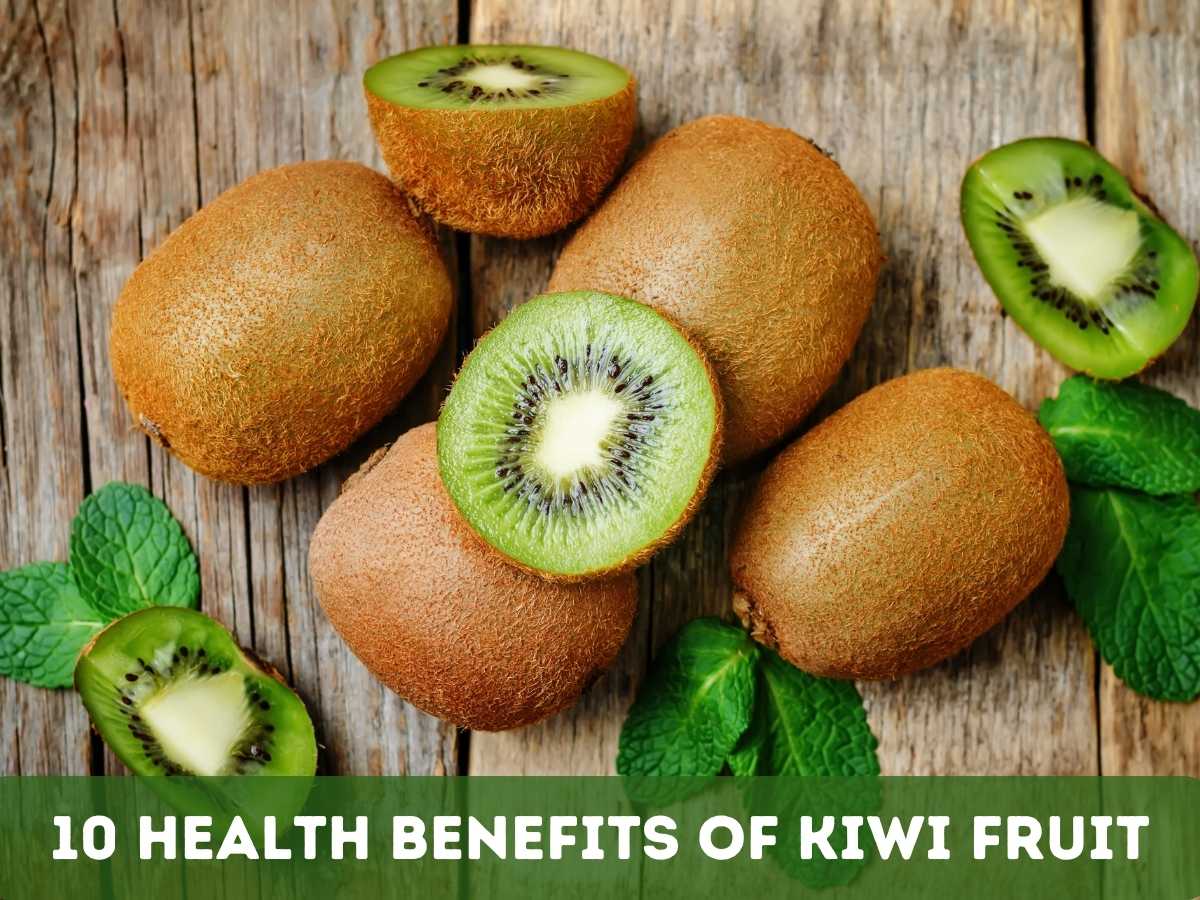
Kiwi, also known as the Chinese gooseberry, is a small fruit with bright green flesh, tiny black seeds, and a bold sweet-tart flavor. But this fuzzy little fruit packs huge nutritional power and impressive health benefits. From boosting immunity to supporting digestion and heart health, kiwi is a fruit that deserves a place in your daily diet.
Top Health Benefits of Eating Kiwi
1. High in Vitamin C – Immunity Booster
Kiwi contains more vitamin C than oranges! Just one medium kiwi provides over 230% of the daily recommended intake of Vitamin C. This supports:
- Strong immune response
- Faster wound healing
- Protection from seasonal infections
2. Rich in Antioxidants
Kiwi is loaded with powerful antioxidants like:
- Vitamin C
- Vitamin E
- Polyphenols
These fight free radicals, reduce oxidative stress, and may slow down aging and lower the risk of chronic diseases.
3. Excellent for Digestion
Kiwi contains a natural digestive enzyme called actinidin that helps break down protein. It also has:
- Soluble and insoluble fiber
- Prebiotic properties
This makes it effective for preventing constipation, bloating, and improving gut health.
4. Supports Heart Health
Kiwi helps in:
- Lowering bad cholesterol (LDL)
- Raising good cholesterol (HDL)
- Controlling blood pressure
- Reducing blood clotting (natural blood thinner)
This can reduce the risk of heart attacks and strokes.
5. Aids in Weight Loss
Low in calories and high in fiber, kiwi helps:
- Keep you full longer
- Control hunger pangs
- Maintain a low-calorie, nutrient-rich diet
6. Improves Skin Health
The Vitamin C and antioxidants in kiwi promote:
- Collagen production
- Reduction of fine lines and wrinkles
- A more radiant and glowing complexion
7. Regulates Blood Sugar
Despite being sweet, kiwi has a low glycemic index (GI). It:
- Doesn’t spike blood sugar
- Is safe for diabetics when consumed in moderation
8. Good for Eye Health
Kiwi contains lutein and zeaxanthin, which help:
- Protect the eyes from harmful blue light
- Lower the risk of macular degeneration and cataracts
9. Promotes Better Sleep
Kiwi is known to improve sleep quality due to its content of:
- Serotonin and antioxidants
Eating kiwi 1 hour before bedtime may help people fall asleep faster and sleep longer.
🥝 Nutritional Value (Per 100g Kiwi)
| Nutrient | Amount |
|---|---|
| Calories | 41-61 kcal |
| Carbohydrates | 14g |
| Fiber | 2-3g |
| Vitamin C | 92mg (230% DV) |
| Vitamin K | 40mcg (50% DV) |
| Potassium | 312mg |
| Folate | 25mcg |
| Vitamin E | 1.5mg |
🍴 How to Eat Kiwi?
- Raw: Cut and scoop, or eat with the skin (yes, it’s edible!)
- In salads: Great with greens or fruits
- Smoothies & juices: Adds tangy flavor and nutrition
- On yogurt or oatmeal: Perfect for a nutritious breakfast
- Desserts: Toppings for cakes, tarts, and sorbet
⚠️ Precautions
- Some people may be allergic to kiwi (itchy mouth or lips).
- Acts as a natural blood thinner, so consult your doctor if you’re on blood-thinning medication.
- Best consumed fresh to retain all its nutrients.
Summary
Kiwi may be small, but it’s a nutritional powerhouse. Whether you’re looking to boost your immunity, improve digestion, lose weight, or enhance skin health — kiwi can be a delicious and natural solution. Make it part of your daily fruit intake and experience the transformation from the inside out.





